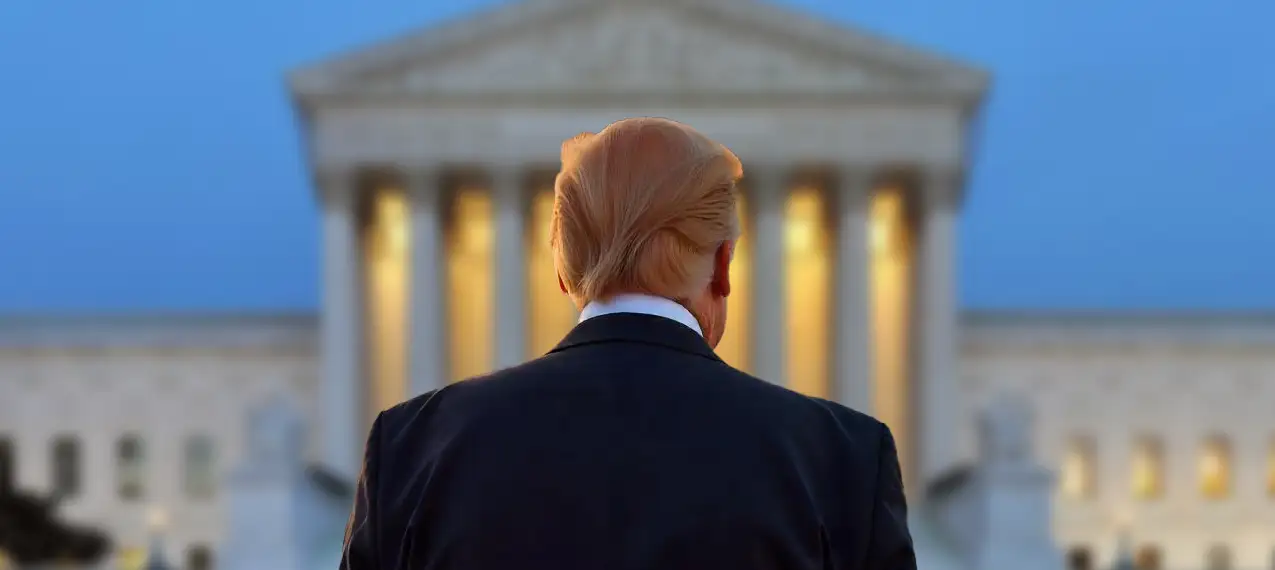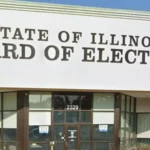
The apparently unending lawfare against President-Elect Trump appears to be nearing an end this week as Mr. Trump has requested the U.S. Supreme Court stay his sentencing in the highly publicized case, People of the State of New York v. Donald J. Trump. In this case, Trump was found guilty of thirty-four counts of falsifying business records to hide “hush money” payments made to adult film star Stormy Daniels.
In July, Judge Merchan delayed Trump’s sentencing after the U.S. Supreme Court concluded that presidents have immunity for official acts in Trump v. United States. Judge Merchan postponed Trump’s sentencing indefinitely to allow his team an opportunity to dismiss the case on those grounds. Trump did just that and moved to dismiss the case in December 2024. Judge Merchan, however, rejected Trump’s arguments, concluding that the former-president’s actions were “unofficial conduct,” and not within the scope of presidential immunity.
Judge Merchan ordered Trump to appear for sentencing on January 10. Trump’s attorneys then sought to delay the sentencing again while he appealed the case in state court.
On January 8, President-elect Trump’s requested an emergency stay from the U.S. Supreme Court to prevent the New York state court from proceeding with sentencing on January 10. Along with his application in the U.S. Supreme Court, Trump applied for an emergency stay in the New York Court of Appeals, the highest court in the state. The New York Court of Appeals denied this request on Thursday, January 9th.
In their request before the U.S. Supreme Court, Trump argues that the New York courts have failed to properly interpret the U.S. Supreme Court’s decision Trump v. United States. Trump currently has an interlocutory appeal pending that seeks review over the trial court’s denial of presidential immunity arguments. This appeal should, they argue, suspend any action by the trial court while it is under review. Further, they argue that the New York trial court’s use of official acts as evidence, including public statements made through official channels and communication with White House staff, runs afoul of the U.S. Supreme Court’s holding in Trump v. United States. Lastly, Trump’s lawyers argue that presidential immunity protects the president-elect, not just the sitting president, from all criminal prosecution or investigation. The transition period between election and inauguration is a necessary piece for the exercise of the President’s executive power.
New York filed a response Thursday morning opposing Trump’s application. New York argued that the U.S. Supreme Court lacks jurisdiction to grant emergency relief because Trump has not exhausted all available state remedies, nor has New York’s Court of Appeals rendered its final judgement. They also argued that Trump’s claims to presidential immunity do not warrant the U.S. Supreme Court’s intervention.
Edwin Meese III, former Attorney General under President Reagan, and Steven Calabresi, a professor at Northwestern School of Law, also filed a brief in support of President-elect Trump. Meese and Calabresi believe that presidential immunity and bipartisan DOJ practice regarding criminal prosecutions of sitting presidents requires New York’s prosecution to be dismissed. Any such prosecution would necessarily distract, burden, and potentially destroy a president’s ability to execute his constitutional duties. They also argue that the United States has a far greater interest in a focused and unburdened president than a partisan county prosecutor has in prosecuting state crimes. This is doubly true when that county prosecutor is a political opponent of the incoming president.
UPDATE (1/10): On January 10, the Supreme Court decided 5-4 that New York’s sentencing of Trump can proceed. Justice Barrett and Chief Justice Roberts joined the bench’s three liberal justices in the majority. This decision does not end the case, however. The Court stressed that the issues Trump raised about his prosecution should be addressed “in the ordinary course on appeal.” This decision simply rejects Trump’s efforts to stay his sentencing. Sentencing will now occur on January 10 with Judge Merchan most likely delivering an unconditional discharge of the case. The felony conviction will stand but Mr. Trump will not face any punishment. Mr. Trump will now be free to pursue a normal appeal of jury’s guilty finding.
SUPPORT LANDMARK LEGAL FOUNDATION
We are truly facing existential threats to our individual rights and liberties, the Constitution, and our national character. If unchallenged, this assault on our very way of life will ruin our great nation. With your financial and moral support, Landmark is not going to let that happen without a fight. Will you join us?
JOIN OUR MAILING LIST
Never miss an update from Landmark Legal Foundation as we continue the fight to preserve America’s principles and defend the Constitution from the radical left.
Landmark will NEVER share your contact information and we will not flood your inbox.





